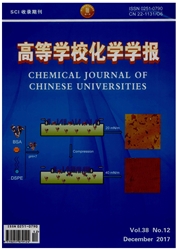

 中文摘要:
中文摘要:
采用反转录聚合酶链反应(RT-PCR)方法、生物信息学软件和质谱分析对中蜂囊状幼虫病毒(CSBV)辽宁株(CSBV-LN)全基因组进行了分子克隆、序列测定、分子生物学特性分析及结构蛋白预测和鉴定.结果表明,CSBV-LN全基因组序列长度为8863个核苷酸,编码一个大的开放阅读框,其中包括178 nt的5'非编码区的前导序列和79 nt的3'非编码区,后面跟着一个poly(A)的尾巴.通过软件分析表明,CSBV-LN蛋白序列类似于哺乳动物的小RNA病毒蛋白序列,预计存在VP1,VP2,VP3和VP4等4个小的结构蛋白;系统进化分析表明,CSBV、囊状幼虫病毒(SBV)和残翅病毒(DWV)的起源相同,推测CSBV有着类似DWV的结构蛋白序列5'-VP2-VP4VP1VP3-3.基于此,根据PAGE蛋白条带的大小,利用NetPicoRNA软件预测结构蛋白的裂解位点.在此基础上,对纯化后的CSBV进行SDS-PAGE分离,对分离到的4个蛋白进行质谱分析,结果鉴定出VP1,VP3和VP0 3个蛋白.
 英文摘要:
英文摘要:
Chinese sacbrood virus(CSBV) belongs to the small RNA virus family,the Picornaviridae.CSBV infection will cause lethal disease in individual bees or the collapse of entire colonies.But the CSBV was only finished sequence at the genetic level,and the structural proteins haven't been reported;thus it has restricted the prevention and control of CSBV.In the paper,the genome of CSBV purified from diseased insects was cloned and sequenced,and its molecular and biological characterization was analyzed,and its structural proteins were predicted and identified by reverse transcriptase polymerase chain reaction(RT-PCR),bioinforma-tics software and mass spectrography,respectively.The genomic RNA of CSBV is 8863 nucleotides in length and contains a single large open reading frame encoding a 319614 polyprotein.The coding sequence is flanked by a 178-nucleotide 5′ nontranslated leader sequence and a 79-nucleotide 3′ nontranslated region,followed by a poly(A) tail.Four major structural proteins,VP1,VP2,VP3 and VP4,were estimated and mapped to the N-terminal section of the polyprotein of which the genes were predicted.Phylogenetic analysis using RdRp of selected picorna-like viruses showed that CSBV/SBV and Deformed wing virus(DWV) tended to group toge-ther,which possessed an RNA of similar size and gene order.The results predicted the probable size and gene order of CSBV/SBV.Structural proteins,VP1,VP3 and VP0,were identified after four proteins were analysed by mass spectrography.This study have paved the way for immunogenicity of CSBV structural proteins,researching on pahogenesis,in vitro cultivation and so on.
 同期刊论文项目
同期刊论文项目
 同项目期刊论文
同项目期刊论文
 期刊信息
期刊信息
